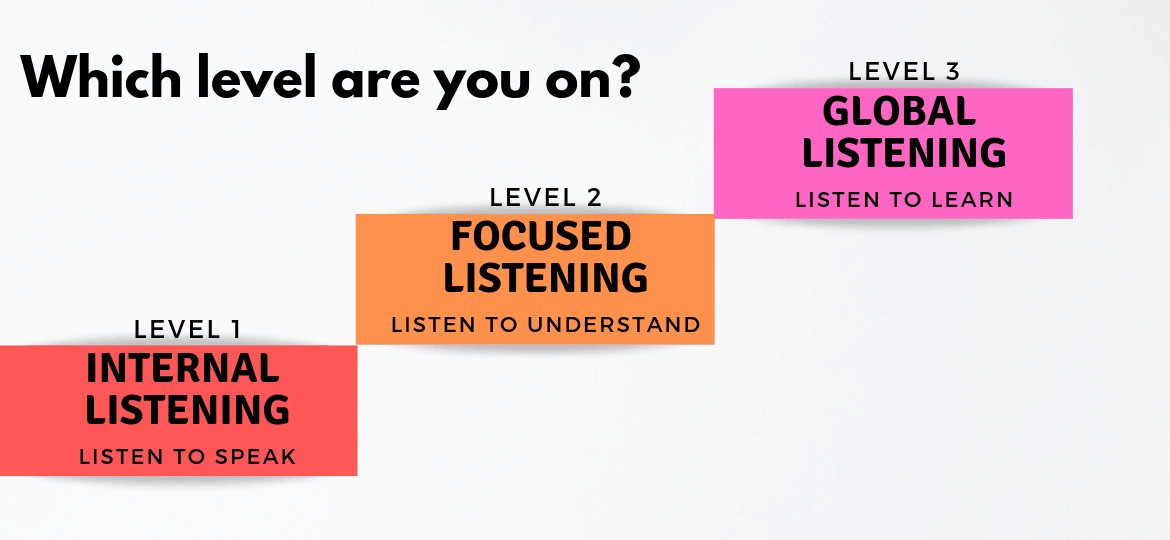Lessons I learnt that only 10000 hours could teach me
I often say, “We're the product of our education & experiences.” In this piece, I want to capture my learnings that only going through the grind could've taught me. I hope these are useful to you too.
Active listening is harder than you think
Active listening is hard for several reasons. We think faster than people speak (400-1000 words/min thinking over 150-250 words/min speaking). We constantly encounter information and stimuli overload in forms of distractions, noise, and our own thoughts. Active listening requires mental effort (ever been tired after a full day of research interviews?) More importantly, humans are self-centered creatures, wired to our own notions, interests, thoughts, and biases. Often, we are already forming a response before the speaker has even finished sharing their views.

Hacks to counter
If you think in frameworks like I do, the levels of listening is a hack that helps me as I imagine unlocking each level like a game. Every time I have the urge to interrupt, I try to with a clarifying question or paraphrasing what the speaker said, rather than interject with my own thoughts and opinions. Another trick I use is to label my thoughts when my mind wanders (thinking, hearing, smelling). I learnt this in a mindfulness session on the insights timer app.
Covering questions in a research interview script
I used to feel accomplished if I could rush through all the interview questions meticulously prepared while designing a research project. I found myself blurring the lines between the importance of research questions and interview questions. The former is expectedly more important to answer than the latter.
Hacks to counter
True insights come from the unscripted moments and non verbal cues in addition to spoken words. I trained myself to map non verbal and behavioral responses to the research questions(objectives) and follow the participant’s lead if they strayed off script in a meaningful manner. I am also proud of my growth in getting comfortable with awkward silences now.
Empathising with stakeholders as I would with users
Understanding stakeholders’ perspectives, constraints, and objectives is crucial for the success of any collaboration but it is less common than we think. As people working in cross functional organisations, it is rampant to come across statements like, ‘XYZ role does not understand anything!’ or ‘We are the only ones who care about business.’ We forget we are part of the ecosystem where efforts can either thrive or fail based on nature of collaboration.
Hacks to counter
Give before take— understand before seeking to be understood. I treat my organisation as my product/outcome and my stakeholders as my users. I actively dedicate time to learn about my stakeholders and apply all my UX principles and metrics to this organisational understanding.
The best research method for me at play here is shadowing. Request your stakeholders if you can shadow them for a day at least, to learn what is at stake for them.
Recognising hidden agendas
Humans will human. Acknowledge that sometimes, despite your best efforts and intentions, your ideas may not stick. Hidden agendas, organizational politics, and unforeseen factors play a significant role.
Hacks to counter
In the words of Julia Roberts in Pretty Woman, ‘Stay cool’. I learnt to always cultivate my relationship blessings and stay adaptable. And sometimes it’s just a matter of the right time and the right conditions before an effort bears fruit. My most obvious hack has been to grow some patience.
Avoiding the Savior Complex
It feels tempting to enter a new organization and find all the things one could fix to create impact right away. However, this savior mentality can backfire if you haven’t yet earned trust or understood the organisational history deeply enough.
Hacks to counter
I always remind myself that the peers around me are equally, if not more, intelligent than I am and there is always a reason to why things are the way they are. This is the right time to employ ‘active listening’ on steroids and spend time understanding the history, context, institutional knowledge, and culture. A 30-60-90 day plan that dedicates 30 days to understanding the people and organisation while helping with small outputs for learnability has served me well. I frequently aim to build upon past successes before touching the past failures.
The 60-20-20 Rule of Supporters
A mentor once taught me to leverage the 60-20-20 rule of collaboration— In any organisation, 60% of the people will support any idea that has been approved, 20% will be active sponsors, and 20% will resist due to hidden agendas. For the longest time I wasted my efforts in trying to convert the 20% resistors hoping to create a collaborative utopia. Clearly, I did not succeed.
Hacks to counter
Once I understood the importance of the supporters, I started focussing efforts on strengthening relationships with the 20% supporters and dedicated some time to keep the 60% informed to form a strong coalition for change. The 20% supporters are the force multipliers who amplify the individual’s efforts and that’s energy well spent.
Embrace Learning and Discomfort
The best leaders are perpetual learners. In my experience, the products that thrived have had leaders who recognised gaps in their expertise and brought in people to fill those gaps.
Hacks to counter
Embrace the discomfort that comes with not knowing and use it as a tool for growth and collaboration. As a researcher, I seek to pair with customer service execs, finance teams, and data scientists to produce holistic answers to problem explorations.
What are some of the lessons you learnt by putting in 10000 hours in life?
I help startups and scale-ups get tangible success through user experience by providing expert guidance and hands-on support. Through fractional and interim engagements, you experience the value of UX expertise with minimal risk.
What inspired me recently
Shreyas Doshi’s post abut the nature of high agency behaviour


